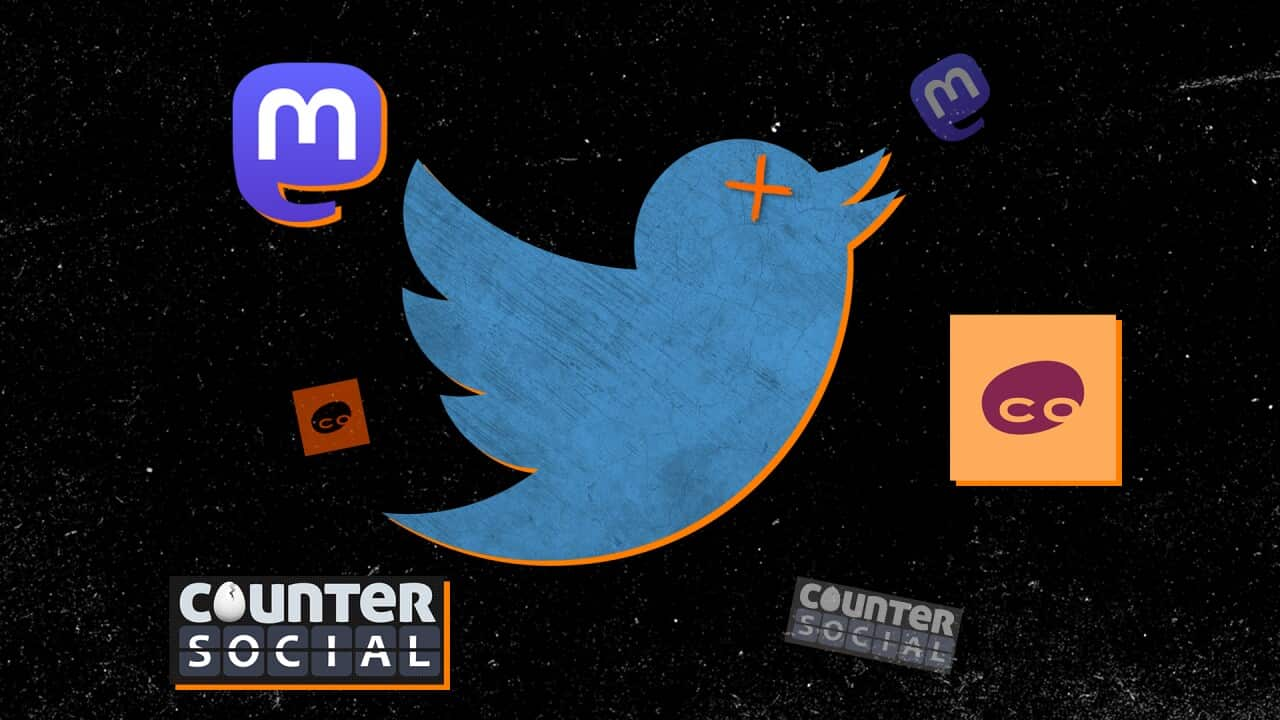Like many other people, I spend too much time on Twitter.
I’d like to think it's because as a journalist, it has become an unofficial part of the job description.
Twitter is where news breaks, where what’s happening is discussed and dissected in real-time. A little over a decade ago, its use was instrumental in overthrowing dictators in places such as Tunisia and Egypt. Twitter also helped foster democracy by opening up public debate.
Now, Twitter is notorious for other reasons. You can take your pick from trolling, brigading (coordinated pushing of a narrative online), spam and misinformation. For many folks (and it seems, advertisers), Elon Musk’s takeover and overhaul of the company may well be the final straw.
The firm Bot Sentinel, which tracks inauthentic behaviour on Twitter, estimates that around 877,000 accounts were deactivated and a further 497,000 were suspended between 27 October and 1 November – that’s more than double the usual number. Meanwhile, Mr Musk says Twitter usage is at an all-time high.
So what if you want to get out? Here are some alternatives.
Mastodon
For those jumping aboard a digital lifeboat, Mastodon appears to be the deserted tropical island of choice - hitting one million active users on Monday.
It’s not too complicated to swap your tweets for toots (yes that’s what they are called) but getting your head around how the site works requires some explaining.
The app - launched quietly in 2016 - looks and functions much the same as Twitter.

Founder, CEO and lead developer of Mastodon, Eugen Rochko, toots about the number of new users and servers since 27 October, 2022 - the day Elon Musk took over Twitter. Credit: Mastodon
If Twitter boasts of being the singular digital town square, Mastodon functions more like a group of neighbourhood house parties.
When you join up, you link your account to one of these servers, named after various themes and communities (there’s one targeted specifically for Australian users).
You can still see posts from people on other servers though, and the user experience so far appears to replicate Twitter.
The idea of being decentralised is that no single company has control over the user data.
Each server also sets its own standard for moderation - which is handled by the server’s administrators, not the company.
The philosophy is that it's easier to crack down on problematic behaviour within smaller, closer communities. How that will go on a larger scale remains to be seen.
As always with new platforms, there are growing pains, but so far the many server admins have done a solid job at keeping things afloat and online amid the weight of hundreds of thousands of new users.
The vibe is perhaps closer to Twitter in its early days - certainly, there is not a significant brand presence on the platform yet, and while news is prevalent on the platform, it doesn’t appear to be driven by the relentless news cycle present on Twitter today.
CoHost
If Mastodon is channelling the sleek vision of Twitter, CoHost is a bit more messy and unfinished.
So far the development team consists of about three people who’ve had to work very hard to keep the site online amid a surge in demand. There isn’t even an app yet.
But it has its charms.

A picture of the CoHost interface, one of the Twitter alternatives people are talking about. Credit: CoHost
The website allows users to even add CSS code to their posts (or as they are called - ghosts) - including fully functional games.
It feels, in a way, like a more creative version of Tumblr - but as far as platforms go, it's pretty embryonic.
CounterSocial
CounterSocial sells itself as having a “zero-tolerance stance” to trolls, bots and “hostile nations.”
Indeed the platform appears to be on a war footing against many of the issues that have plagued sites such as Twitter, Facebook, and Tiktok.

The interface of CounterSocial, a platform with a “zero-tolerance stance” to trolls, bots and “hostile nations”. Credit: Counter Social
It’s gone as far as to ban sign-ups from countries such as China and Pakistan over concerns of foreign interference.
Even the feed is like something you’d see on the computer screens in a war room, complete with live tickers from 24-hour news, police radio monitoring, and video feeds from Al Jazeera and BBC World News.
It can be a little intense - but it can be disabled and simplified into something a bit more manageable and familiar.
It feels a lot like the Twitter web app Tweetdeck - but there are some limitations for free users.
Because the website relies on paid subscriptions - some features, including even having a publicly linkable profile page, are behind a paywall.
Bluesky
BlueSky, a project from ousted Twitter founder Jack Dorsey, hasn’t been released yet.

Former Twitter CEO Jack Dorsey will launch BlueSky soon. Source: AAP
Interest in the platform spiked after it broke that Mr Musk had acquired Twitter - but exactly how this project will look and what the experience will be like remains unclear.











